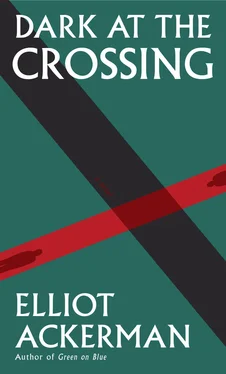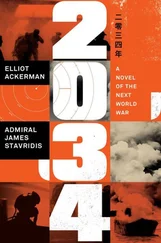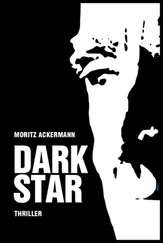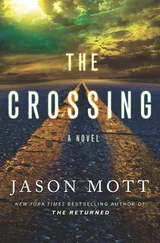“There’ll be checkpoints that way,” said Jamil. “Go around Kilis, then head north.”
Amir opened the glove box, taking out his notebook. Jamil sketched a map of their detour on a page, handing it back.
“Give it to him,” said Amir. “I’ve never been good with directions.”
Jamil looked at Haris — clothes caked in mud, head hanging like a bullied dog. He handed him the map.
Haris looked it over.
“You know where you’re going?” Jamil asked.
Haris didn’t say anything.
They pulled away in the Peugeot.
As they passed through the intersection, Haris caught a glimpse of Hamza who, standing on the roadside, shut one of his eyes as if giving a playful wink. But he was really squinting through the single lens of his glasses, trying to see inside the car, and who had left him behind.
Haris turned away. He looked down at Jamil’s sketch, glad once again to have a map.
Haris thought of it as a suicide note. He had written it in the bathroom the night before he left for Detroit Metro Airport. Twice his sister had knocked on the door, asking what he was doing in there. It wasn’t a long note, but it had taken a long time to write. In a month she would receive her college degree. That summer she would marry. Samia’s fiancé had offered to buy Haris’s plane ticket to the ceremony. He’d accepted, but instead used the money to buy a ticket to Antep. Samia didn’t need him anymore. After losing their mother and being abandoned by their father, Haris had always loved Samia according to her needs. When he’d earned the money to get them both out of Iraq, he was all she had and theirs was a big love. Once they arrived in Michigan and she began her schooling, Samia’s need was less, but enough to hold them together. And that night, as he crouched on the bathroom floor, using the toilet lid as a desk, their love seemed just big enough to allow Haris to get the note right even though she barely needed it, or him.
Important as it had seemed then, he couldn’t quite remember all he’d written. He hadn’t said anything about going to fight with the Free Army, or even where he was going. He remembered that. To begin her new life, Samia would drift away from him, this he understood, having been left by family before. But he didn’t mention any of that. He told her he wouldn’t be returning, that he’d transferred his bank account to a new one under her soon-to-be married name, that she should stay in their place until graduation, that his choice didn’t mean he wasn’t her brother. There was one line in the note he remembered clearly: The key to undoing might be in doing.
It was the only explanation he left behind. The rest was logistics.
He set the note in the living room, on an accent table stacked with thick fashion magazines, whose styles Samia would be able to afford after marriage. Haris opened his closet in the living room to finish packing. His camouflage rain jacket hung in the back, a gift from Jim. Samia hated when he wore the jacket. With his dark red hair, Haris could’ve been taken for a westerner, and in the camouflage jacket Samia thought he looked lean and cruel, like a soldier, not like the interpreter he had been. In those days he had considered himself a soldier, though he wasn’t. Perhaps that was why he would still occasionally wear the jacket, so she would see in him what he had once seen in himself.
The morning Jim let him keep the jacket it had been raining for hours. Their convoy had just returned to Hurricane Point. As they pulled into the gravel parking lot, engines idled, then cut out one by one. Jim and Haris stepped from their Humvee, unfastening their body armor. Jim’s fit like a second skin, Haris’s like a tortoise shell. The early sun cast shadows in Haris’s sunken cheeks, adding to his sullen expression. The evening before, Jim had lent Haris the waterproof jacket, taking pity when he saw that Haris was unprepared for the storm. Haris now wore it beneath his body armor. Jim wore sopping fatigues, yet he was smiling from behind his thick blond beard, his crooked teeth running like a broken fence through a thicket. Despite Jim having done him a favor with the jacket, Haris wouldn’t look at him. At that moment, he’d hated Jim.
The night before, they had been on a raid, a retribution mission. One of Triple Nickel’s sister teams had hit a bad IED — one guy killed, another’s back snapped like hard candy. An informant had walked onto Hurricane Point with details about the bomb maker. Jim had interrogated him with Haris translating, convincing the informant to finger the bomb maker’s home on a map. Usually the team wouldn’t go out on a raid unless a couple of sources confirmed their information, but this informant had identified the type of IED down to its triggering mechanism: a baby monitor. The detail seemed enough.
The team had already taken a sledgehammer to the front door while Haris sat parked in the Humvee, his hands pushed deep into the pockets of Jim’s jacket, a cigarette dangling from his lips. Haris listened to the rain as he waited to get called inside. A broken wiper stuttered across the windshield. He played with an empty bottle of Motrin he’d found in Jim’s pocket, popping the lid off and on, off and on. The team moved through each room, their flashlights sweeping behind sofas and into corners, the light occasionally spilling through a window and into the street. Aside from some muffled voices, a dog barking here and there, it was quiet. Jim stepped into the courtyard. He flashed his light at Haris, who tossed his cigarette into the wet street and then entered the living room, where a woman cried by the doorway, her breath coming in hyperventilated huffs. One of the guys from the team thrust a black-and-white photo of the alleged bomb maker in her face. “Anya howa!” he shouted.
Jim leaned over to Haris, whispering: “She knows, man.”
The woman shuffled toward Haris on her knees, grabbing his pant leg. “He’s not here,” she said in Arabic.
Haris crouched next to her. “You need to tell them,” he whispered.
The woman said nothing. Jim and a few others formed a circle around her, rifles slung across their chests, helmets cinched tight, night-vision goggles hiding their eyes like depraved carnival masks.
“Please,” she said to Haris.
He took her elbow gently in his hand. “They’re not leaving. He killed one of their friends.”
The woman’s shoulders collapsed, her chin buckling toward her chest. “He’s not here,” she said softly.
Haris shook his head at Jim.
Jim walked into a corner room, returning with a boy not more than fourteen years old. His tousled black hair pasted itself against his sweaty forehead, and he wore a loose pajama shirt. Etched across his face was a scowl which did not intimidate.
Pushing Haris out of the way, Jim grabbed the boy by his nape. With a single arm, he throttled him to the floor. The boy’s chest hit the ground. He let out a gasp, sounding like too much air through too small a hole. His mother watched, her entire body shaking.
“He doesn’t know!” she shouted, lunging at Jim.
“Christ’s sake, Abadi. Hold on to her!” Jim snapped.
Haris firmly grasped the woman’s elbow.
She swiveled around and slapped Haris clean across the jaw.
Jim lifted his arm, as if to strike her back. Haris placed his body between them. “I’ve got her,” he said.
The woman’s shouts turned to whimpers.
“Let’s try again,” said Jim. He leaned over the boy, who lay sprawled on his stomach. Jim stepped on his spine with one boot, grabbing an arm, pulling it up, slowly twisting it by the wrist. The boy breathed heavily. Jim leaned in front of him, holding the faded black-and-white photo close to his face, like a rag of chloroform. “Ask him where his father is.”
Читать дальше












